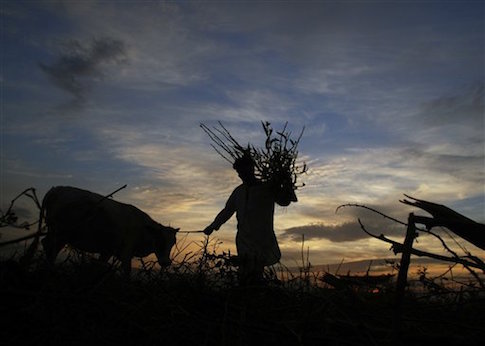U.S. officials are warning that wide-ranging deficiencies in an aging 55-mile gas pipeline in Afghanistan could lead to a "catastrophic failure" if the United States does not take immediate steps to repair vulnerable areas.
Afghanistan’s Sheberghan-Mazar pipeline has "suffered from years of corrosion," according to government oversight authorities.
Despite an estimated $14 million U.S. reconstruction effort along the pipeline, engineers still have not succeeded in fixing vulnerable areas, according to the Special Investigator General for Afghanistan Reconstruction (SIGAR), a government oversight body.
While the Pentagon’s Task Force for Business and Stability Operations (TFBSO) in the war torn country has invested millions to rebuild unsafe areas of the line, "the project is not yet complete and TFBSO will soon cease its work in Afghanistan" as the United States wraps up operations there, according to a warning letter sent by SIGAR to outgoing Secretary of Defense Chuck Hagel.
SIGAR's findings highlight larger concerns by many that Afghanistan will rapidly collapse—potentially into violence—as the United States withdraws and hands key responsibilities back to the central government.
Though improvements to the pipeline have been made over the years, the United States must invest more to finish the job or risk being blamed for a "catastrophic failure" along the line, according to SIGAR.
"U.S. Agency for International Development (USAID) and U.S. Embassy Kabul officials have expressed reservations about TFBSO and the [Afghan Gas Enterprise’s] Sheberghan-Mazar pipeline project," SIGAR wrote. "USAID and U.S. Embassy officials told us that the full extent of corrosion is unknown because TFBSO’s analysis only tested 29 discrete sites rather than the full length of the pipeline."
"Those officials also expressed concern that [the Afghans] would not be able to complete the pipeline’s rehabilitation before TFBSO ceased operations in Afghanistan," the letter states. "The officials stated that, by leaving [Afghani engineers] to complete the work without TFBSO assistance, the Afghan government would likely blame the U.S. if a catastrophic failure occurs along the pipeline."
A 2004 analysis conducted by a French engineering company found that "corrosion, poor design, low quality welding, and a lack of proper pipe supports" plague the pipeline.
The report "noted high leakage rates" and other "deficiencies" that could create the conditions for a "catastrophic failure," according to SIGAR’s letter.
Due to these conditions, the pipeline has not operated at full capacity to avoid straining the line.
The United States has spent an estimated $14 million since 2011 on materials needed to rehabilitate the pipeline, according to a government source familiar with the project.
However, this figure does not include costs associated with training the Afghans to perform proper oversight over the line.
The United States purchased 15 kilometers of new piping and has already helped the Afghans replace 12 kilometers of "corroded sections" along the line.
However, it is unclear if the United States will remain in Afghanistan long enough to help the Afghans complete the last 3 kilometers.
SIGAR says it is "concerned" that the Afghans lack "the capacity to complete installation of the remaining 3 kilometers of replacement pipe, incrementally increase pressure while checking for leakages, and perform future maintenance without continued support and guidance," according to the letter.
"U.S. Embassy officials have echoed our concern" and made clear that the Afghans lack "the materials and expertise to properly survey the pipeline and repair leaks as they are discovered," according to SIGAR.
The pipeline also lacks a key protection system that would enable overseers to determine vulnerabilities inside the pipeline.
The lack of this protective system makes it "almost impossible to evaluate the state of internal and external corrosion on the lines," according to SIGAR.
Other "insecure areas" along the pipeline have prevented teams from conducting full leakage surveys, the letter says.
The Afghans' "inability to fully inspect the pipeline is cause for concern," SIGAR warns.
